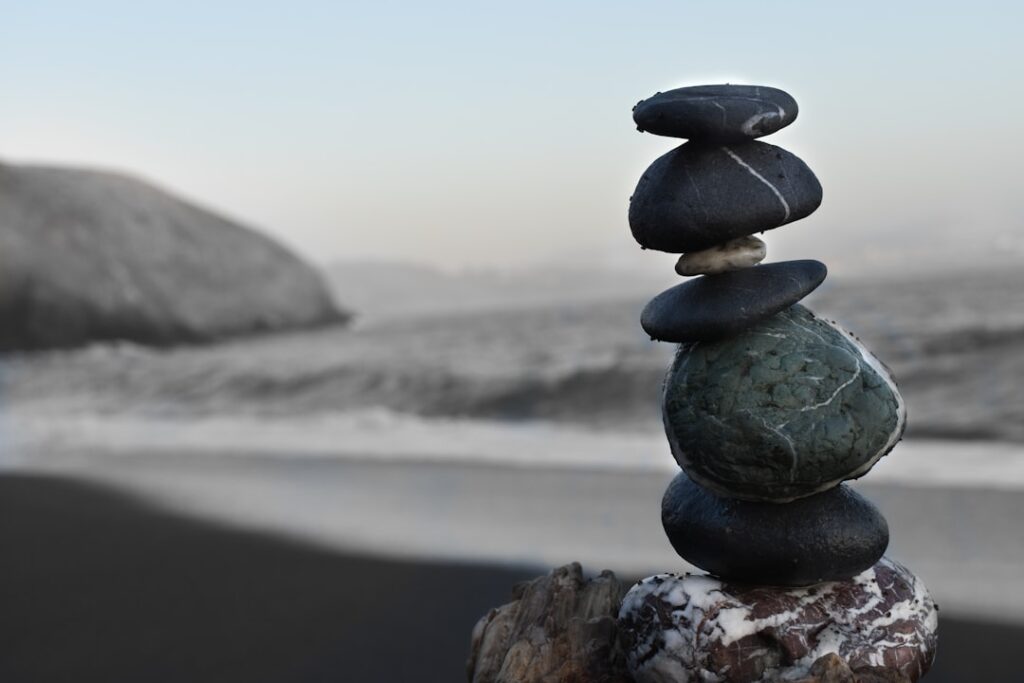Self-care is the practice of taking care of oneself in order to maintain a healthy and balanced lifestyle. It involves making conscious choices to prioritize one’s physical, mental, and emotional well-being. Self-care is essential for overall health and can help reduce stress, improve mood, and increase resilience. It is important to recognize that self-care is not selfish, but rather a necessary aspect of maintaining a healthy and fulfilling life. By taking the time to care for oneself, individuals can better manage the demands of daily life and improve their overall quality of life.
Self-care can take many forms, including prioritizing sleep and rest, engaging in regular exercise, practicing mindfulness and meditation, nourishing the body with healthy food, setting boundaries, and engaging in activities that bring joy and fulfillment. By incorporating these practices into one’s daily routine, individuals can cultivate a greater sense of well-being and resilience. It is important to remember that self-care is not a one-size-fits-all approach, and what works for one person may not work for another. It is essential to explore different self-care practices and find what works best for you.
Key Takeaways
- Self-care is essential for overall well-being and involves prioritizing physical, mental, and emotional health.
- Prioritizing sleep and rest is crucial for maintaining energy levels, cognitive function, and overall health.
- Engaging in regular exercise helps to improve mood, reduce stress, and boost physical health.
- Practicing mindfulness and meditation can help reduce anxiety, improve focus, and promote emotional well-being.
- Nourishing your body with healthy food provides essential nutrients and supports overall health and well-being.
- Setting boundaries and learning to say no is important for maintaining a healthy work-life balance and reducing stress.
- Engaging in activities you enjoy is important for promoting happiness, reducing stress, and enhancing overall well-being.
Prioritize Sleep and Rest
One of the most important aspects of self-care is prioritizing sleep and rest. Adequate sleep is essential for overall health and well-being, as it allows the body to rest and repair itself. Lack of sleep can lead to a variety of health issues, including increased stress, decreased cognitive function, and a weakened immune system. In order to prioritize sleep, it is important to establish a consistent sleep schedule and create a relaxing bedtime routine. This may include turning off electronic devices, practicing relaxation techniques such as deep breathing or meditation, and creating a comfortable sleep environment.
In addition to prioritizing sleep, it is also important to incorporate regular rest periods into one’s daily routine. This may involve taking short breaks throughout the day to relax and recharge, as well as scheduling regular days off to rest and rejuvenate. By prioritizing sleep and rest, individuals can improve their overall health and well-being, as well as increase their ability to cope with the demands of daily life.
Engage in Regular Exercise
Regular exercise is another important aspect of self-care. Physical activity has been shown to have numerous health benefits, including reducing stress, improving mood, and increasing energy levels. Exercise can also help prevent a variety of chronic health conditions, including heart disease, diabetes, and obesity. In order to incorporate regular exercise into one’s self-care routine, it is important to find activities that are enjoyable and sustainable. This may include activities such as walking, jogging, swimming, yoga, or dancing.
In addition to finding enjoyable activities, it is also important to establish a consistent exercise routine. This may involve scheduling regular workouts or activities, as well as finding ways to incorporate physical activity into daily life, such as taking the stairs instead of the elevator or going for a walk during lunch breaks. By engaging in regular exercise, individuals can improve their physical health, reduce stress, and increase their overall sense of well-being.
Practice Mindfulness and Meditation
Mindfulness and meditation are powerful tools for self-care that can help reduce stress, improve focus, and increase resilience. Mindfulness involves paying attention to the present moment without judgment, while meditation involves focusing the mind and eliminating distractions. Both practices have been shown to have numerous health benefits, including reducing anxiety, improving mood, and increasing self-awareness. In order to incorporate mindfulness and meditation into one’s self-care routine, it is important to find techniques that resonate with you.
This may include practices such as deep breathing exercises, guided meditation sessions, or mindfulness-based activities such as yoga or tai chi. It is also important to find time for these practices in your daily routine, whether it’s first thing in the morning, during a lunch break, or before bed. By practicing mindfulness and meditation, individuals can cultivate a greater sense of calm and well-being, as well as improve their ability to cope with the challenges of daily life.
Nourish Your Body with Healthy Food
Nourishing the body with healthy food is an essential aspect of self-care. A balanced diet that includes a variety of fruits, vegetables, whole grains, lean proteins, and healthy fats can provide the body with essential nutrients and energy. In addition to providing physical nourishment, eating a healthy diet can also have a positive impact on mental and emotional well-being. It is important to prioritize mindful eating by paying attention to hunger cues, eating slowly, and savoring the flavors of food.
In order to nourish the body with healthy food, it is important to plan meals ahead of time, stock up on nutritious ingredients, and find healthy recipes that are enjoyable to prepare and eat. It is also important to listen to your body’s hunger and fullness cues and make choices that support overall health and well-being. By nourishing the body with healthy food, individuals can improve their energy levels, mood, and overall sense of well-being.
Set Boundaries and Learn to Say No

Setting boundaries and learning to say no are important aspects of self-care that can help protect one’s physical, mental, and emotional well-being. It is important to recognize one’s limits and communicate them effectively in order to prevent burnout and overwhelm. This may involve setting limits on work hours, social commitments, or other responsibilities in order to create time for rest and relaxation.
In addition to setting boundaries, it is also important to learn how to say no when necessary. This may involve declining additional work assignments, social invitations, or other requests in order to prioritize one’s own needs. By setting boundaries and learning to say no when necessary, individuals can protect their time and energy in order to maintain a healthy balance in their lives.
Engage in Activities You Enjoy
Engaging in activities that bring joy and fulfillment is an important aspect of self-care. Taking time for hobbies, interests, and leisure activities can help reduce stress, improve mood, and increase overall well-being. It is important to make time for activities that bring joy and fulfillment into your life, whether it’s spending time with loved ones, pursuing creative interests, or exploring new hobbies.
In addition to engaging in enjoyable activities, it is also important to find ways to incorporate moments of joy into daily life. This may involve finding small moments of pleasure throughout the day, such as enjoying a cup of tea in the morning or taking a walk in nature during lunch breaks. By engaging in activities you enjoy, you can increase your overall sense of well-being and resilience in the face of life’s challenges.
In conclusion, self-care is an essential aspect of maintaining overall health and well-being. By prioritizing sleep and rest, engaging in regular exercise, practicing mindfulness and meditation, nourishing the body with healthy food, setting boundaries, and engaging in activities you enjoy, individuals can cultivate a greater sense of balance and resilience in their lives. It is important to recognize that self-care is not selfish but rather a necessary aspect of maintaining a healthy and fulfilling life. By making conscious choices to care for oneself, individuals can better manage the demands of daily life and improve their overall quality of life.
Looking for more self-care tips and inspiration? Check out Oak Sky Home’s article on creating a peaceful and nurturing home environment. This insightful piece offers valuable insights into how your living space can positively impact your well-being and provide a sanctuary for self-care. Discover practical ideas for incorporating mindfulness, relaxation, and comfort into your home to support your mental and emotional health. Learn more about fostering a sense of tranquility and balance in your living space by visiting Oak Sky Home.
FAQs
What is self-care?
Self-care refers to the practice of taking action to preserve or improve one’s own health and well-being, particularly during periods of stress.
Why is self-care important?
Self-care is important because it helps to reduce stress, prevent burnout, and improve overall well-being. It also allows individuals to better cope with the demands of daily life.
What are 5 things you can do for self-care?
1. Practice mindfulness and meditation 2. Engage in regular physical activity 3. Maintain a healthy diet and get enough sleep 4. Set boundaries and learn to say no 5. Engage in activities that bring joy and relaxation, such as hobbies or spending time with loved ones.
How often should I practice self-care?
Self-care should be practiced regularly, ideally on a daily basis. It is important to incorporate self-care activities into your routine to maintain overall well-being.
What are the benefits of practicing self-care?
The benefits of practicing self-care include reduced stress, improved mental and physical health, increased resilience, and a greater ability to cope with life’s challenges.



